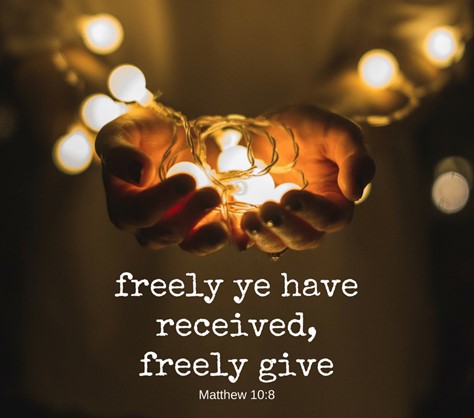Pastor’s Corner: “Pocket Change”
Mark 12:43 (NIV) – 43 Calling his disciples to him, Jesus said, “Truly I tell you, this poor widow has put more into the treasury than all the others.
Time and again, Jesus praises the faithfulness of those considered outside the realm of religious respectability. For example, He praises the faithfulness of a Roman centurion, and celebrates the saving faith of the “sinful woman” who poured perfume over his feet; the daughter of the Syrophoenician woman is also healed due to her mother’s bold and radical trust. The faithfulness of these religious outcasts stands in direct contrast to the hypocrisy of the Temple elite. True faithfulness, Jesus observed, was rarely met in the secluded halls of Temple holiness. Instead, honest faith could be seen in the lives of ordinary men and women clinging to the promises of God amidst life’s difficulties.
While most of us believe that our lives and impact on the Kingdom of God is mere “Pocket Change,” Jesus shows us that the opposite is true. Pocket change in the Kingdom of God is the most valuable of all! Jesus’ teaching on the Kingdom of God turns our world on its head: Matthew 20:16 (NIV) – So the last will be first, and the first will be last. Matthew 20:16 (NIV) – 16 “So the last will be first, and the first will be last.”
The account of the “Widow’s Mite” is another one of these instances (Mark 12:41-44, Luke 21:1-4). A widow comes into the outer court of the temple. Unnoticed by the crowd, she is alone. By definition, she is without a husband in a culture that makes it incredibly difficult for a woman to provide for herself. In her poverty, aloneness, and vulnerability, she is the emblem of those who have been ravaged by sin. Even though she lives, she feels the sting of death and lives in its shadow. Yet, without a husband to provide for her or to protect her, she comes faithfully to the temple to worship God through the giving of her meager offering.
Many had put in large sums. In contrast to the loud clinks heard as those before her dropped in their heavy gifts, only a whisper is heard from her small coin falling. Jesus, seeing and hearing what this frail widow does, calls His disciples to Himself and seizes the moment to teach them not only the true nature of our giving to God, but the true nature of His kingdom. She, in Christ’s words, has put in more than all those who have gone before her, even though she gave the least. How so? All those before her gave large sums. The answer is clear: they gave out of their abundance, yet she out of her poverty has put in “everything she had, all she had to live on” (Mark 12:44). The Greek word translated as “live” is a form of bios, from which we get the word biology, or “the study of life.” She figuratively had just put her life in the offering box to God.
If the widow is praised for giving “all that she had to live on,” this obviously means that we must give away all we have to earn our full heavenly rewards! Right? Wrong. When the widow makes her offering, Jesus does not praise her for the amount offered. Never once does Jesus say, “look how much she has put in!” Nor does Jesus delve into a lengthy description of proportional giving. What he does comment on is how, in her giving, she pledges her very self. There is no indication in the text that this widow is anything less than faithful in her offering. Her act of giving is not a financial act, but a casting of her very self on the grace of God.
God sees what man overlooks. The big gifts in the temple were surely noticed by people; that’s probably what the disciples were watching. But Jesus saw what no one else did: He saw the humble gift of a poor widow. This was the gift that Jesus thought worthy of comment; this was the gift that the disciples needed to be aware of. The other gifts in the treasury that day made a lot of noise as they jingled into the receptacles, but the widow’s mites were heard in heaven. Our hearts, our giving and our lives are certainly more than pocket change. You are not overlooked.
Remember, our gifts to God should be something that we feel in the deepest part of our lives. As David says, “Shall I offer to the Lord my God that which costs me nothing” (II Samuel 24:24), so should we feel a personal investment in our act of giving. We need not drain our bank accounts, but neither should our giving to the Lord be so “affordable” that it is never something we think about. The Lord looks at the heart – and if our hearts are not involved in our giving, then we are missing the very point of giving in the first place.
In His Grace
Pastor Hamilton
